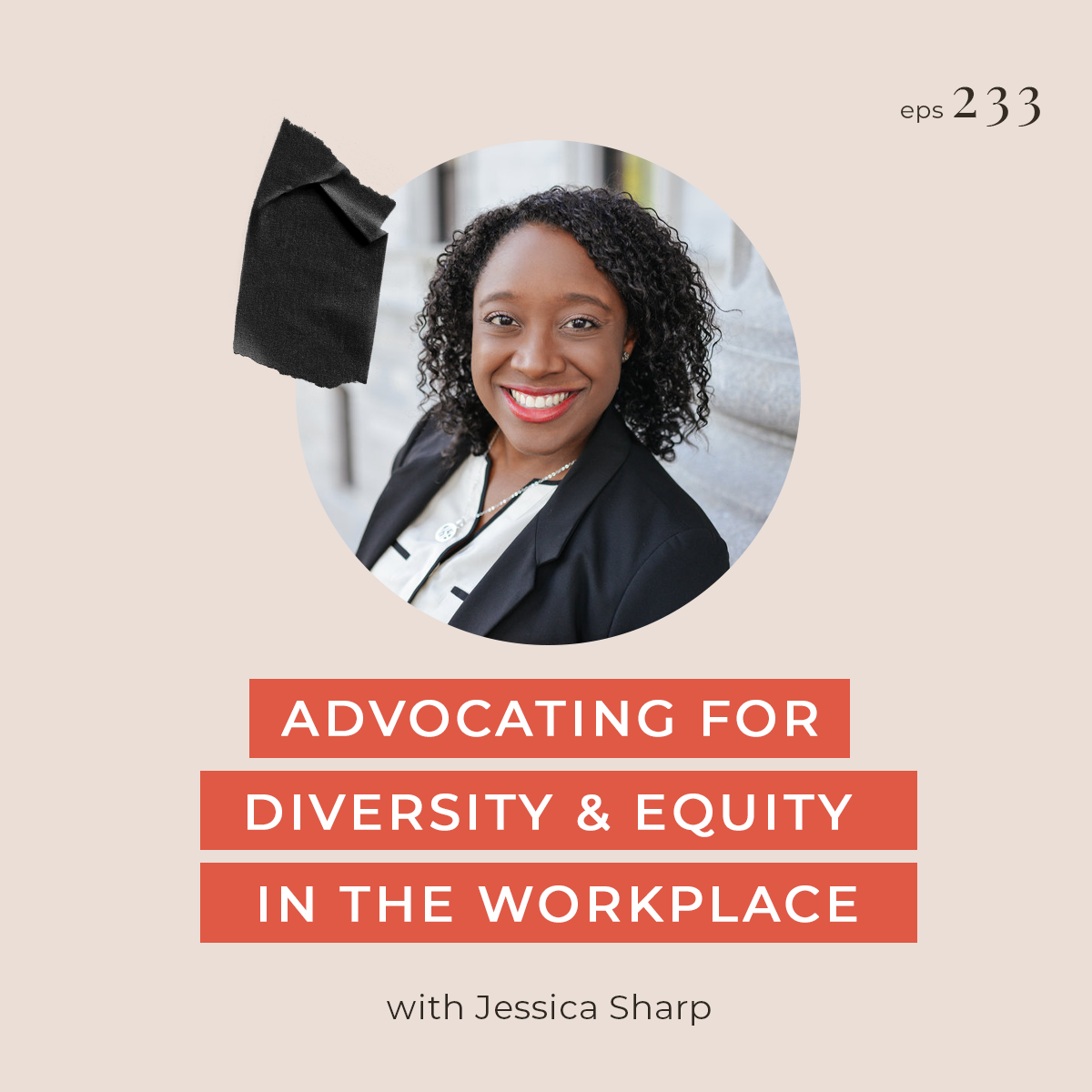Advocating for Diversity and Equity in the Workplace
Episode 233 | Author: Jessica SharpIn light of the current state of the nation and to amplify more black women's voices, the Bossed Up team is passing the mic over to me. I'm Jessica - a black woman, nonprofit professional and consultant.
I founded a company called Sharp Brain Consulting and I work with organizations - primarily nonprofit and educational organizations, to educate them about brain-based leadership.
Today, I'm going to spend some time talking about organizational development - specifically about racial justice, equity, inclusion, unconscious bias, and social justice within organizational spaces. Recently, with all the protests and violence going on in the country, I've had folks reach out to me and ask:
"Should I talk about this in my organization? Why and how do I have this conversation in the workplace?"
My answer is: You have to have these conversations in the workplace. We have to have conversations around race, equity, and inclusion in our workplaces. Whether you are a corporate entity, a bank, a retail outlet, no matter what your business is, you need to have these conversations for the following reasons:
If we don't have the conversations, we will not reach equity in our organizations.
Why is that a bad thing? Research overwhelmingly tells us that diversity within organizations - specifically within leadership, makes companies more profitable. Any company outside of nonprofit wants to make more money and be as efficient and effective as possible to best serve our clients and our consumers.
The world is becoming more diverse.
Specifically within the U.S., there's some research that says that by 2040, the U.S. will have flipped and we will no longer be a nation that is mostly white. We will be a minority-majority country. We will be in a place where minorities will essentially have more control in terms of their buying power and organizations will no longer be able to ignore, either explicitly or implicitly, communities of color and marginalized communities. Organizations have to care about this group, whether they want to or not, because we will impact their bottom line.
Social justice can't be achieved if organizations aren't doing better or demanding more from themselves, and from each other.
We all need to do better internally and individually within organizations. We also have to demand more. We can't keep ignoring this, and we cannot keep not talking about it. Now that we know why it's important to have these conversations, what can you do to take action?
Here are three strategies you can practice within your organization - and within yourself personally, that will encourage change.
1. Look at how you hire, promote, and manage performance reviews within your organizations.
You can't have more black folks and people of color in your organization if you don't hire them, right? That starts with how you advertise, where you advertise, and what your recruitment practices look like for your organization. You've got to make sure you have a diverse pool, or you can't hire diverse people - and specifically in this context, I'm going to talk about black people. If your pool isn't diverse, who are the people that you're picking from next? How do you manage promotion within your organization? Is there some sort of policy? Is there some sort of best practice? Do you have leadership development programs? If so, are people of color or black people within those programs? How do you manage those things and who is missing from those conversations? Who's missing from the pool you promote from? Finally, how are you managing performance reviews? What is the policy around that? What are the best practices? How do you ensure equity within that process? You need to make sure that those processes are equitable. So if you're in leadership or H.R., you can take the lead on that. If you are not in leadership or H.R. within a company, you can ask questions like, "Hey, I have some questions about hiring and promotion practices. Are they equitable? Can we talk about what that process looks like next?"
2. Look into diversity-related trainings
Do you have any sort of diversity-related trainings within your organization or does your organization encourage you - and pay for you, to go to diversity-related training sessions that are external to your walls? We just have to have diversity. Trainings can help do that. The training that I recommend is an unconscious bias training, which is the heart of a lot of our racial inequities and a lot of our systemic issues. I encourage you to work with someone who's done this type of work before and who can really make sure that your trainings are effective. Try the Harvard Implicit Association Test. This is a really great introduction to bias.
3. Educate yourself and do diversity-related audits.
Education is a critical aspect to this work and we CANNOT do better if we don't know better. Education is critical. We have to educate people.I want you to watch two TedTalks that are really good in terms of unconscious bias:
Then, do diversity-related audits of your organization - and personally.
I'd love to continue this conversation. I love to hear from you. I would love learn your thoughts, opinions, and answer any questions you have. This work is really, really, really important to me. So I'm happy to take this conversation offline. You can find me personally on Instagram and Twitter, and you can follow Sharp Brain Consulting on Facebook or Instagram. My sincere hope is that you kind of take some time to listen to others, be empathetic, and have really bold and courageous conversations, because those are necessary in order for us to move forward. So I hope to hear from some of you all soon!
